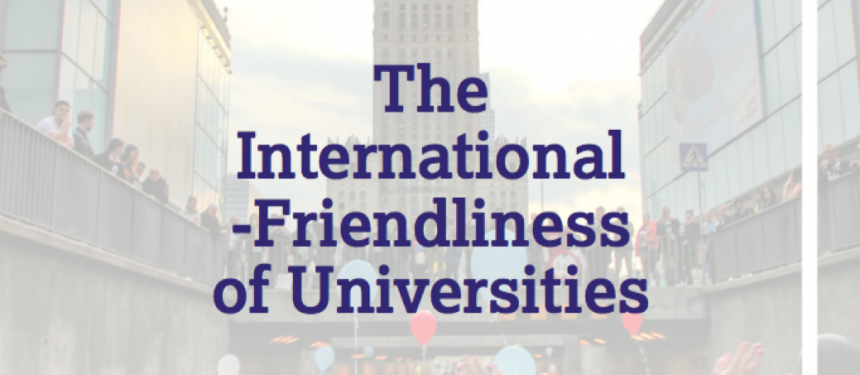In a large-scale survey of how friendly universities are, Erasmus students said they struggle to make friends with locals while on exchange, negatively affecting their overall experience.
News and business analysis for Professionals in International Education
Have some pie!
Erasmus students struggle to make local friends – ESN survey
 The Erasmus Student Network surveyed more than 12,000 homecoming European students who had participated in Erasmus exchanges
The Erasmus Student Network surveyed more than 12,000 homecoming European students who had participated in Erasmus exchanges The survey of 12,365 homecoming Erasmus students carried out by the Erasmus Student Network, argues unfulfilled friendships could contribute to lower satisfaction rates among study abroad students. It also reveals that students often find the career and language benefits of studying in another European country don’t match students’ expectations.
On the bright side, the study also shows that most students learned more than they expected about the local culture of the country where they studied, about other foreign cultures and mostly about their own culture.
“We can conclude that friendship networks are a very important aspect of the stay abroad for international students”
As might be expected, longer stays abroad appeared to correlate to a greater improvement of perceived foreign language skills, knowledge of the host country’s culture and employability.
Another outcome that students said surprised them is that they developed far more friendships with students from their own country than they expected while studying abroad.
This contrasts with reports by many of the participants that it was difficult for them to make local friends. Around 40% said they felt local students weren’t interested in interacting with them; 33% said there weren’t enough opportunities to meet local students; and 23% cited different lifestyles as a barrier to international friendships.
ESN also carried out a survey of 9,387 local students, exploring their experiences of interacting with foreign students. Almost half (46%) said they had no international friends.
“This unfulfilled desire [to make more local friends] could be a reason for lower satisfaction with the stay abroad experience,” the study notes.
“We can conclude that friendship networks are a very important aspect of the stay abroad for international students. Friendships with local, multinational and co-national students positively contribute to the general satisfaction with the stay abroad,” it continues.
Given that both international and domestic students reported few opportunities to interact with each other, the study recommends educators work to create these opportunities through initiatives like a buddy system that pairs international students with local mentors.
Only 68% of students surveyed said their institution offered a buddy system. And those students who were assigned a buddy weren’t always convinced of their usefulness, rating the buddy system on an average 4.53 out of 10 (where 10 is most useful).
Mentoring should be expanded the study suggests but universities should “place the focus on training the local students for the tasks of becoming a useful buddy.”
The study notes that as well as having an impact on academic progress, longer periods of overseas study naturally lead to more social interactions, resulting in better integration in the host country.
“The destination itself doesn’t play an important role in students’ satisfaction”
The European Commission should work to promote the benefits of longer stays among national agencies and higher education institutions, it argues. Meanwhile, universities should encourage students to take part in 12-month exchanges rather than shorter placements, it says.
It found satisfaction levels didn’t differ greatly depending on whether or not students went to their first choice of country or institution. “This suggests the destination itself doesn’t play an important role in students’ satisfaction,” the report notes.
The survey also supports the theory that mobility leads to more mobility. More than two-thirds of those who had studied abroad (70%) said they were interested in pursuing a master’s degree abroad after their exchange experience.
“Overall, students without a study abroad experience show a greater tendency to stay after their studies in their home country and students with a study abroad experience tend to subsequently migrate mainly within Europe,” the study notes.
Still looking? Find by category:


